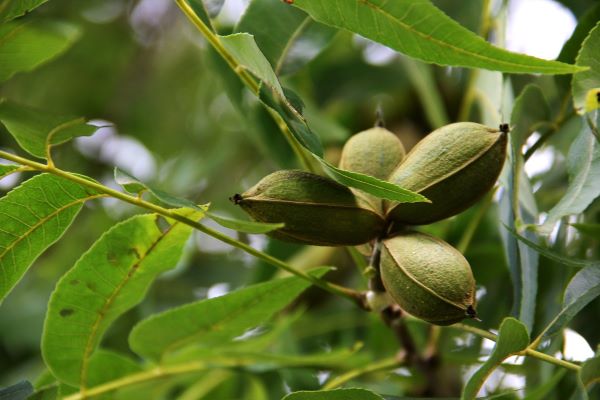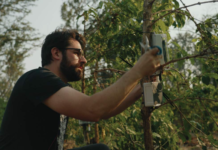South Africa is the world’s third-largest pecan producer. According to the 2020 issue of the South African Pecan Nut Producers Association’s (SAPPA) magazine, there are 98,842 acres of pecan trees in the country, and that number continues to grow. Experts predict the 2023 pecan season will be particularly fruitful.
Why South Africa?
South Africa has the ideal conditions for growing pecans. Its warm weather and well-drained soil allow for abundant pecan production at a low cost. Because its seasons are opposite to those in the Northern Hemisphere, growers can sell their crop during a less competitive time of year in foreign markets. That’s why experts predict the country’s fruit and nut industry will grow by 3.2% in 2024.
Although the United States is the global leader in pecan production — generating up to 300 million pounds of the nut per year — South Africa produces more pecans than any other African country. Most orchards are located in the town of Hartswater.
Other major pecan producers include Pretoria, Upinton, Kimberly and Prieska, with smaller operations sprinkled throughout the country. The Vaalharts Irrigation Scheme draws water from the Vaal River and diverts it to numerous plantations.
Benefits of Pecan Farming
In addition to being well suited to South Africa’s climate, pecan trees offer several advantages to farmers. They can remain productive for decades and provide a steady source of income year after year. Once they reach maturity, their tall, durable trunks offer protection against being trampled by animals.
Pecan trees pair well with the practice of cover cropping. Many South African farmers plant cover crops or leave organic matter on the ground around their trees to improve the soil’s nutrient profile. This practice also prevents erosion since much of the earth in South Africa’s pecan orchards is sandy.
Additionally, consumers are eating more pecans than usual, with sales increasing by 12.2% in 2021 compared to the previous year. Farmers are scaling their crop production as the world’s population grows. Pecans offer high amounts of magnesium, calcium, potassium and monounsaturated fat, making them a healthy, high-calorie food source.
From Zinc to Zebras: The Challenges of Growing Pecans
Planting pecans is an investment. Although mature, fruiting trees can produce pecans throughout a farmer’s lifetime, they often take up to 10 years to reach their full production potential. That’s a long time to water, fertilize and protect young trees without seeing a profit.
Young trees are also vulnerable to being trampled or knocked over. South African farmers must protect their saplings from zebras and kudus, which often step on them as they pass through the area. Once the trees mature, crows and baboons may eat the nuts.
South African farmers face another challenge when it comes to the soil itself, which is often zinc deficient. Many have to apply supplemental zinc to their orchards.
Pecan farmers in South Africa don’t receive government support like many American growers. They must raise funds and perform their own horticultural research. Most rely on Eskom, South Africa’s only electricity provider — but internal corruption, overspending and outdated power plants plague the company. In response, many farmers have installed solar panels to generate energy.
Another unusual challenge stems from high demand for pecan trees and low availability in South Africa. Some growers have ordered one variety of saplings and received the wrong kind. However, they can’t exchange them for the type they ordered. As a result, some orchards only have one or two varieties of pecans that flower at different times. This mismatch means they cannot pollinate each other, leading to lower nut production overall.
Lastly, climate change is leading to increased drought across Africa. Temperatures may rise by more than 10.8 degrees Fahrenheit by 2100 in the continent’s southernmost regions, putting farms in jeopardy. With land prices skyrocketing at the same time, it’s difficult for farmers to break into the industry and make a living without familial connections.
A Booming Industry
South Africa’s pecan orchards are thriving despite the challenges, and the country is now a world leader in pecan production. Once they reach maturity, pecan trees provide a long-lasting, steady source of income for farmers with proper irrigation systems, and they’re more durable than most crops. The future of South Africa’s fruit and nut industry is looking bright.

Jane is an agriculture and environmental journalist and the founder and editor-in-chief of Environment.co, where she covers sustainability and eco-friendly living.









